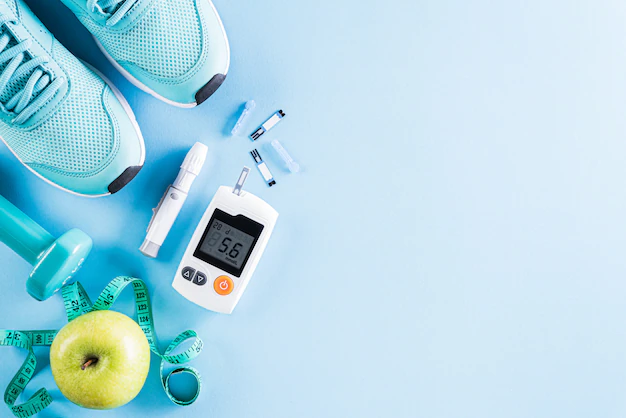Exercise and Diabetes

Exercise is an essential part of managing diabetes. Regular physical activity can help improve blood sugar control, reduce insulin resistance, lower blood pressure, and improve overall cardiovascular health. Here’s what you need to know about exercise and diabetes:
- Blood Sugar Control:
When you exercise, your body uses glucose for energy. This can help lower blood sugar levels, especially if you’re exercising regularly. However, if you’re taking insulin or other diabetes medications, it’s important to monitor your blood sugar before, during, and after exercise to avoid hypoglycemia (low blood sugar).
- Exercise Guidelines:
The American Diabetes Association recommends at least 150 minutes of moderate-intensity aerobic exercise per week, such as brisk walking, cycling, or swimming. You should also aim to include strength training exercises at least two days per week to help build muscle mass and improve insulin sensitivity.
- Safety Precautions:
Before starting an exercise program, it’s important to talk to your healthcare provider, especially if you have any diabetes-related complications. You should also take safety precautions, such as wearing comfortable, well-fitting shoes and carrying a source of fast-acting glucose, such as glucose tablets or juice, in case of hypoglycemia.
- Types of Exercise:
There are many different types of exercise that can be beneficial for people with diabetes, including aerobic exercise, strength training, and flexibility exercises like yoga or tai chi. It’s important to choose activities that you enjoy and that you can incorporate into your daily routine.
- Benefits Beyond Blood Sugar Control:
Regular exercise can also help improve cardiovascular health, reduce stress and anxiety, improve sleep quality, and even boost mood and cognitive function. These benefits can help improve overall quality of life for people with diabetes.
In conclusion, regular exercise is an important part of managing diabetes and reducing the risk of diabetes-related complications. However, it’s important to talk to your healthcare provider before starting an exercise program and to take safety precautions to avoid hypoglycemia. With the right approach, exercise can be a powerful tool for managing diabetes and improving overall health and wellbeing.
